The Psychology of Politics
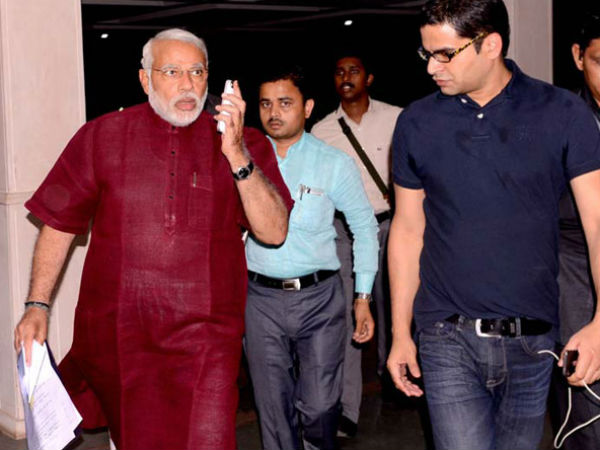
Psychology of Politics… Todays Times of India has a headline ‘ Punjab Congress ropes in a poll star– Amarinder says Kishor, man behind Modi, Nitish wins, to plan campaign’
In the age of Bajrangi Bhaijaan, who the hell can dare to challenge the Bhai of Bollywood. Doesn’t he know that if bhaijaan gets pleased, the person becomes Katrina kaif, and if he gets annoyed transformation to Vivek Oberoi or for that matter, Abhishek bhacchan is a matter of flash. Oops! My mistake !! It read poll star, not a superstar.
Prashant Kishor 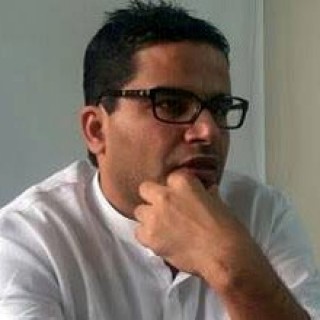
So who this poll star is? Prashant kishor, as he is known in this earthly abode, is the chief election strategist who led the victory trail in 2012 Gujrat assembly elections, 2014 lok sabha elections, and 2015 Bihar assembly elections. He is the one who took very minute calculated steps right from drafting the speeches of the leaders based upon the region specific issues and caste dynamics, to media and social media management, and overall campaign drive. Victory was but obvious to follow if one makes such calculated and well researched move. He analysed the regional issues, caste dynamics and the sentiment of masses and leads the drive in the desired fashion. A great political psychologist Mr. Prashant Kishore is!!
Psychology of Politics (Political Psychology) is the study of behaviour resulting from an interaction between psychological and political variables. Psychology which is the scientific study of behaviour from and individual’s perspective has contributed a lot in our understanding of political behaviour which includes the behaviour of both the leaders as well as the masses. One area in which extensive researches have been carried out is political socialisation i.e. the way an individual develops his political attitude and the factors responsible for the development of such political consciousness. All the studies unanimously conclude that it is the environment and the ethos shared by the community among its members which is responsible for politicisation of an individual.
The concept of political psychology supposed to have come into being in 1930, with the publication of Lasswell’s ‘Psychopathology & Politics’. Two circumstances helped political psychology to acquire identity. First was the search for better management techniques for elections and the second was the behavioural revolution of the political science that facilitated the search by imparting training in methods and techniques of behavioural research.
In India, the 4th general elections were the first to be held in the absence of Nehru’s charismatic leadership. The ruling congress party for the first time felt serious challenges to their supremacy and therefore, sought the help of political scientists and behavioural scientists to empirically and analytically study the elections. This joint effort by political scientists, psychologists, and sociologists heralded the inception of political psychology in India.
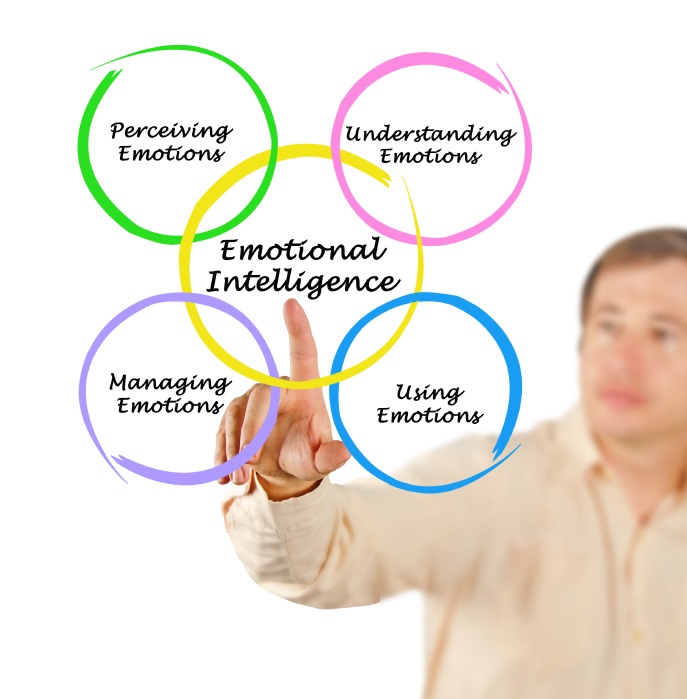
Currently there are following six hot issues of discussion among political psychologists:
- What should be the appropriate unit of analysis of political psychology- the individual or the group or the organization?
- Should we be searching for a single unifying paradigm to reinforce the present pluralism?
- How important is the comparative approach to political psychology?
- Is it possible to develop indicators that are comparable across cultures and nations?
- What are the limitations of practical application of psycho-political researches?
- What could be a feasible syllabus for the subject of political psychology?
For quiet sometime, political psychology was limited to the study of stable political systems. But in the light of growing political instability, the topics like political violence, communalism, terrorism, rise of personality cult accompanied by the culture of sycophancy etc are also being taken up.
The study of political socialisation is singularly important to both political scientists and psychologists. Indian political psychologists have focussed on specific areas of research like the way, various political attitudes develop, and the mechanism by which social identity shape one’s political orientation. Systematic studies on the personality of leaders and leadership behaviour, voting patterns and behaviour of electorate and public opinion have also been taken up by the political psychologists in India.
During elections, the audience tended to give positive response to the themes based on hope oriented positive appeal and negative response to fear oriented negative appeal.[MEHTA 1975]
Ashraf found affiliation with trade union to be an important factor in the development of political affiliations among factory workers. He found that more than one-third of the trade union leaders as compared to only 13% of non trade union workers were found to have definite political affiliation. The union membership tended to reduce political apathy. Thus unionization of workers tended to increase political consciousness among them. Interaction with friends appeared as an important source of political socialisation. [ASHRAF 1975]
Nearly 94% of such workers having friends among political groups showed higher level of political consciousness. Workers who had no such friends were found to be least politically conscious. Exposure to urban experience is also an important factor in political socialization. Ashraf found nearly 2/3rd of such workers having urban background. The possibility of exposure to socio-political influence in an urban setting is high. Such exposure also promoted political modernisation which in turn was positively correlated with sense of political efficacy. [ASHRAF 1975; KIM 1969]
Exposure to mass media like radio, newspaper, television, etc was found to be related to the sense of political efficacy as well as political awareness. Citizens who were exposed more to political socialisation showed significantly higher political consciousness and greater political efficacy.
Apart from trade union membership, the attendance of election meetings and exposure to political information through home & school environment are other well known sources of political socialisation of citizens. Occupation of parents was found to be significant factor in child’s socio-political attitude.
Likewise, parenting style to contributes to the issue. Children of authoritarian parents with little opportunity for participation in family decision making process, and reared under rigid observance of familial norms develop extreme orthodox authoritarian attitudes. On the other hand, children of democratic and participative parents develop liberal democratic socio-political attitudes. [A.K.SINGH]
Studies also suggest that privately and communally managed schools tend to communalize the children and promote the seeds of right wing authoritarianism in them.
Various types of democratic institutions have been functioning in India since independence. The citizens have been interacting with such groups. This exposure serves to educate and inform the citizenry. One of the indicators of political education is diffusion of democratic values and the attitude of citizens towards the democratic institutions. Also Read: Work culture in India – The AARAM culture
Studies by Seth [1970,1975] and Nandy [1972] indicate that a very large proportion of Indian citizens show a general trust in the effectiveness of democratic institutions and view them as desirable in Indian scenario. They believe in the legitimacy of parliamentary institutions and thought that elections were necessary for effective governance. While most Indians cherish democratic values, recent studies do suggest that they are becoming increasingly confused and frustrated at the growing hypocrisy and double faceted Indian politicians, politicisation of bureaucracy and increasing criminalization of politics.
Kothari pointed out that Indian electorate was becoming more and more politically aware and rising rate of literacy is an important contributing factor to this. Large proportions of electorate now recognise the power of vote and appear willing to reprimand the ruling party for perceived inadequacies in its public performance. Most Indian voters however feel some ambivalence and frustration because of disturbing trend of booth capturing and other electoral malpractices indulged in by corrupt politicians which tend to dilute their mandate and enable these elements to capture power. Since, such incidents are on rise, an increasing number of voters are now questioning the validity of their vote.
In India, any political activity has the dynamics of caste as an important factor, as it is one of the powerful traditionally established social organisations. As it is easy to mobilise people along caste line in India, caste is increasingly getting politicised. Kothari is of the opinion that it is not the politics which is getting caste ridden, but it is the caste which is getting politics ridden. Weaker sections of the society are using caste as a means to achieve socio-political goals. The caste factor tends to promote political partisanship among certain sections of the electorate, which does not argue well for a healthy democracy.
Ahmed [1970] in his study found considerable awareness among the citizens about the role of caste in elections. Two out of every three persons surveyed knew as to how their caste had voted in the elections and one in every two, showed awareness of interest of their caste and links between political institutions and their caste interest. This growing political consciousness among hitherto deprived groups and its exploitation by unscrupulous politicians during elections coupled with rise of extremist groups like Dalit Panthers, Dalit Sena etc have sharpened inter-group rivalries and has endangered the stability of the nation.
Thus, the process of democratisation no doubt has given the entrenched groups, greater say in political decision making by ensuring their representation through reserved electorates and thus, may represent a step towards equality in otherwise unequal society. However, what is more, disturbing is the diminishing hold of elite and the unfolding of populist democracy to reach the lower strata of social hierarchy.
This have been associated with a loosening of earlier administrative protocols and steady erosion of the institutional insulation of the decision-making process in public administration and economic management. It is now common practice for an incumbent low caste chief minister of a state to transfer civil servants belonging to upper caste and get pliant bureaucrats from his own caste. Many members of the supposedly independent civil services now try to curry favour of the politicians to avoid transfers and get desirable jobs and locations.
Administrative appointments outside the main civil service, like those of the boards of public sector corporations, particularly those under the state government, are often used as political sinecures to keep clamouring factions happy. This behavior of political leaders is not particularly surprising in the light of the fact that most of them are authoritarian insecure leaders who know that their success in election was essentially due to caste equation they enjoyed. Their media managers employed would not be good enough to repeat their success.
The insecurity of being voted out of office in the next election doesn’t usually compel better performance but resort further to populist politics. This escalates tension among the different factions of the society and destroys inter-elite consensus. No polity can survive without an authoritative elite that shares minimum values and goals. Populism destroys both the role of the people and role of the elite. One example of such dangerous populism is to play the communal card to invoke deep anxiety among the masses about national unity & security and turn electoral politics. Such tactics undermine the democracy and unified existence of a plural society.
Thus we can say that despite of the conflicts and contradictions, the picture that emerges is one of shared environment and ethos by communities and their vibrant participation in political and economic process. These fact explain why there has generally been a continuity and a sense of harmony prevailing over a large part of countryside in spite of the conflict induced by irresponsible politics that sometimes tear our social fabric apart.
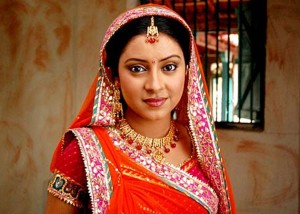
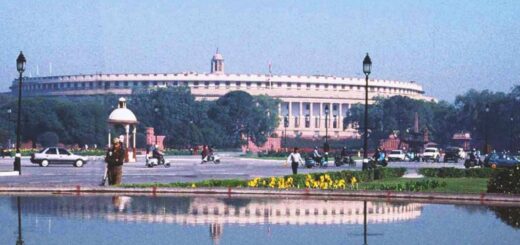

very nice publish, i certainly love this web site, carry on it
I really liked your blog article.Really looking forward to read more. Much obliged.
You might try adding a video or a picture or two
Jade voyance tirage gratuit tarot de belline
I truly appreciate this post.Much thanks again. Keep writing.
Very good post! We will be linking to this great content on our site. Keep up the great writing.
It is really a nice and useful piece of info. I am glad that you shared this helpful information with us. Please keep us informed like this. Thanks for sharing.
Nearly all of the opinions on this particular blog site dont make sense.
I’аve learn a few excellent stuff here. Certainly value bookmarking for revisiting. I surprise how so much attempt you set to make this sort of excellent informative website.
You have brought up a very superb details , thankyou for the post.
This very blog is obviously entertaining as well as amusing. I have picked helluva interesting things out of this blog. I ad love to go back again and again. Thanks a lot!
Thanks again for the blog article.Thanks Again. Great.
This page really has all of the info I wanted about this subject and didn at know who to ask.
Thanks so much for the blog article. Really Great.
This very blog is without a doubt interesting additionally amusing. I have discovered a lot of interesting advices out of it. I ad love to return every once in a while. Cheers!
Im grateful for the blog article.Really looking forward to read more. Keep writing.
Nice! Just wanted to respond. I thoroughly loved your post. Keep up the great work.
This particular blog is obviously interesting as well as amusing. I have chosen a lot of interesting things out of this amazing blog. I ad love to return over and over again. Thanks!
This website was how do you say it? Relevant!! Finally I ave found something that helped me. Thank you!
what we do with them. User Demographics. struggling
Very good blog post.Really looking forward to read more.
I truly appreciate this article.Really looking forward to read more. Keep writing.
I really liked your blog article.Really thank you! Want more.
I want to encourage you to continue your great posts, have a nice holiday weekend!
Usually I do not read article on blogs, but I wish to say that this write-up very compelled me to try and do so! Your writing style has been surprised me. Thank you, quite nice post.
Respect for ones parents is the highest duty of civil life.
It’аs actually a great and helpful piece of info. I’аm glad that you shared this helpful info with us. Please keep us up to date like this. Thanks for sharing.
Terrific paintings! That is the type of information that should be shared around the net. Shame on Google for not positioning this submit higher! Come on over and visit my site. Thank you =)
I truly appreciate people like you! Take care!!
Pretty good post. I just discovered your weblog and wanted to say which i have actually enjoyed browsing your website posts
pretty handy stuff, overall I believe this is really worth a bookmark, thanks
I saw two other comparable posts although yours was the most beneficial so a lot
Only wanna input that you may have a very nice internet site, I enjoy the design and style it actually stands out.
This is my first time pay a visit at here and i am really impressed to read all at alone place.
What web host are you the use of? Can I am getting your affiliate link for your host?
Really informative post.Really looking forward to read more. Much obliged.
Looking forward to reading more. Great blog.Thanks Again. Keep writing.
Loving the info on this web site, you have done outstanding job on the articles.
Wow, marvelous blog layout! How long have you been blogging for? you make blogging look easy. The overall look of your website is magnificent, as well as the content!
I truly appreciate this article. Much obliged.
This unique blog is obviously educating additionally informative. I have picked up a lot of handy advices out of this blog. I ad love to come back over and over again. Thanks!
Wow, wonderful blog layout! How long have you been blogging for? you make blogging look easy. The overall look of your website is magnificent, let alone the content!
Wow, awesome blog layout! How long have you been blogging for? you made blogging look easy. The overall look of your site is magnificent, let alone the content!
Thanks again for the article.Really looking forward to read more. Want more.
There is definately a lot to learn about this subject. I like all the points you made.